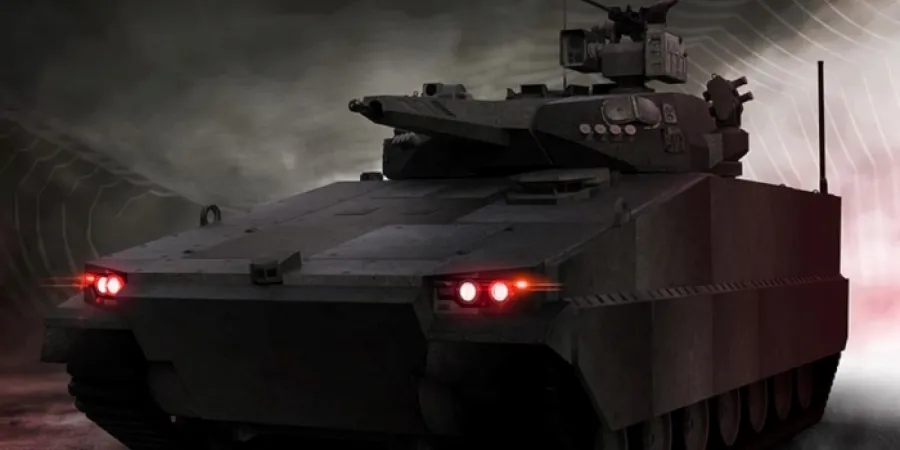Hanwha Defense unveils Redback infantry fighting vehicle in Australia
Israel's Elbit Systems is one of the companies in the joint venture that manufactures the armored vehicle
Eyal Boguslavsky
| 14/01/2021
South Korean company Hanwha Defense and joint venture Team Redback, which includes Israel's Elbit Systems, officially launched the Redback infantry fighting vehicle (IFV) this week in Australia. The step came prior to the delivery of three of the IFVs for a Risk Mitigation Activity in which the Redback will compete with Rheinmetall’s Lynx KF41 IFV for an Australian Army requirement valued at US$13.9–20.8 billion.
Project Land 400 Phase 3, also known as the Mounted Close Combat Capability, is meant to deliver and support up to 450 tracked IFVs and 17 maneuver support vehicles that will be built in Australia. They will replace the army’s obsolescent M113AS4 armored personnel carriers which, although upgraded in recent years, date from the mid-1960s.
Team Redback is an industry group led by Hanwha Defense Australia and currently comprising Elbit Systems, Electro Optic Systems (EOS), ECLIPS, Milspec, Bisalloy, Soucy, Marand, and CBG Systems. Hanwha is said to be continuing efforts to expand Australian industry involvement.
All three Redbacks will be formally handed to over the Australian Department of Defence on January 13 for detailed testing and evaluation related to lethality, blast, and ballistics, including destructive testing of one vehicle to assess survivability, as well as mobility and support. In October, the project will move to a final evaluation phase and the down selection of a preferred tenderer. This is expected to be presented to the government in Canberra for consideration in 2022. Initial operating capability of the selected platform is set for 2024–25, while final operating capability is anticipated by 2030–31, although the changing of the timeline is possible.
Israel's Elbit Systems is one of the companies in the joint venture that manufactures the armored vehicle
South Korean company Hanwha Defense and joint venture Team Redback, which includes Israel's Elbit Systems, officially launched the Redback infantry fighting vehicle (IFV) this week in Australia. The step came prior to the delivery of three of the IFVs for a Risk Mitigation Activity in which the Redback will compete with Rheinmetall’s Lynx KF41 IFV for an Australian Army requirement valued at US$13.9–20.8 billion.
Project Land 400 Phase 3, also known as the Mounted Close Combat Capability, is meant to deliver and support up to 450 tracked IFVs and 17 maneuver support vehicles that will be built in Australia. They will replace the army’s obsolescent M113AS4 armored personnel carriers which, although upgraded in recent years, date from the mid-1960s.
Team Redback is an industry group led by Hanwha Defense Australia and currently comprising Elbit Systems, Electro Optic Systems (EOS), ECLIPS, Milspec, Bisalloy, Soucy, Marand, and CBG Systems. Hanwha is said to be continuing efforts to expand Australian industry involvement.
All three Redbacks will be formally handed to over the Australian Department of Defence on January 13 for detailed testing and evaluation related to lethality, blast, and ballistics, including destructive testing of one vehicle to assess survivability, as well as mobility and support. In October, the project will move to a final evaluation phase and the down selection of a preferred tenderer. This is expected to be presented to the government in Canberra for consideration in 2022. Initial operating capability of the selected platform is set for 2024–25, while final operating capability is anticipated by 2030–31, although the changing of the timeline is possible.



